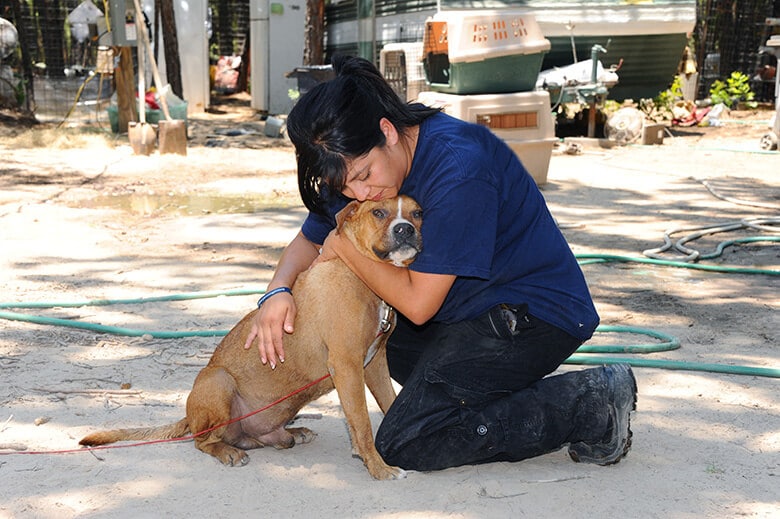In the heart of Florida, where sun-kissed landscapes meet the vibrant pulse of wildlife, there exists a solemn duty that many do not comprehend. Becoming an animal cruelty investigator is not merely a career choice; it is a profound commitment to the voiceless creatures who inhabit our world. This profession demands both tenacity and compassion, and provides an opportunity to effect tangible change. This article delves into the nuances of becoming an animal cruelty investigator in Florida, exploring the requisite licensing, responsibilities, and the broader impact of this critical role.
To embark on this path, one must first understand the educational requirements. A high school diploma is the minimum requirement; however, aspiring investigators often benefit from pursuing higher education. A degree in fields such as criminal justice, animal science, or environmental studies provides a solid foundation. Such academic pursuits equip individuals with essential analytical skills and an understanding of the biological and sociological facets of animal welfare. Additionally, courses in forensic science and investigative techniques may prove advantageous. Knowledge is power, especially when it pertains to the protection of living beings.
Once the educational prerequisites are satisfied, the next step involves obtaining the necessary licensing. In Florida, animal cruelty investigators are typically employed by local law enforcement agencies or animal control departments. As such, the licensing process may vary. Many aspiring investigators opt for certification through accredited organizations like the National Animal Control Association (NACA) or the Animal Control Academy of Florida. These certifications are a testament to one’s dedication and expertise in animal welfare laws and humane animal handling techniques.
Following certification, it is crucial to foster practical experience. Prospective investigators often volunteer with humane societies, animal shelters, or rescue organizations. This hands-on experience exposes candidates to the realities of animal welfare and the day-to-day challenges that come with the field. Networking within these communities can also yield valuable connections and mentorship opportunities. Taking the initiative to connect with seasoned professionals enables emerging investigators to gain insights and advice that can prove transformative.
With the educational and experiential foundations laid, one can now delve into the duties that define the role of an animal cruelty investigator. These responsibilities encompass a broad spectrum, extending beyond mere enforcement of laws. Investigators conduct thorough investigations into allegations of animal abuse and neglect. This often involves compiling evidence, interviewing witnesses, and documenting findings meticulously. Each case is approached with an analytical mindset, underscored by a commitment to achieving justice for the animals involved.
Furthermore, investigators regularly collaborate with various stakeholders, including veterinarians, social service agencies, and legal representatives. This interdisciplinary approach is essential, especially when dealing with complex cases that may involve multiple facets of animal welfare. Understanding the legal framework surrounding animal rights is paramount. Investigators must stay well-versed in state laws, local ordinances, and federal regulations that govern animal treatment. This knowledge positions them as not only investigators but advocates for the voiceless.
An often-overlooked aspect of this role is the emotional resilience required to confront the harsh realities of animal cruelty. Investigators witness harrowing cases that can take a psychological toll. It is crucial to cultivate a support system—be it professional colleagues, friends, or mental health resources—to navigate the emotional landscape of the job. Self-care practices, such as mindfulness and peer support groups, are invaluable in fostering mental well-being. The path of an animal cruelty investigator is as much about protecting animals as it is about maintaining personal fortitude.
Furthermore, community education plays a pivotal role in the duties of an investigator. Raising public awareness about animal cruelty and prevention strategies is essential. Conducting workshops, speaking engagements, and community outreach initiatives allows investigators to inform the public on issues such as responsible pet ownership, animal care standards, and recognizing signs of abuse. Empowering the community fosters a culture of accountability, encouraging residents to take an active role in animal welfare.
As one immerses deeper into the realm of animal cruelty investigation, opportunities for specialization may arise. Some investigators may choose to focus on specific species—such as domestic animals, wildlife, or farm animals—delving into the unique challenges and legislation surrounding each category. Others might concentrate on specific types of abuse, such as hoarding cases or fighting rings, dedicating themselves to eradicating these horrendous practices.
While the work of an animal cruelty investigator is undeniably challenging, it is rife with the potential for positive change. The rewards extend beyond courtroom victories; they manifest in the lives saved and the awareness raised within communities. Each case closed is a testament to the resilience of both investigator and the animals they seek to protect. The journey of becoming an animal cruelty investigator in Florida is not merely a career path—it is a profound and noble calling to serve as guardians for those who cannot advocate for themselves.
In conclusion, the role of an animal cruelty investigator is multifaceted, requiring a blend of education, certification, practical experience, and emotional resilience. Despite the challenges faced, the impact on the lives of countless animals is immeasurable. By fostering a commitment to justice and compassion, one can truly become a catalyst for change in the ever-evolving landscape of animal welfare in Florida.








